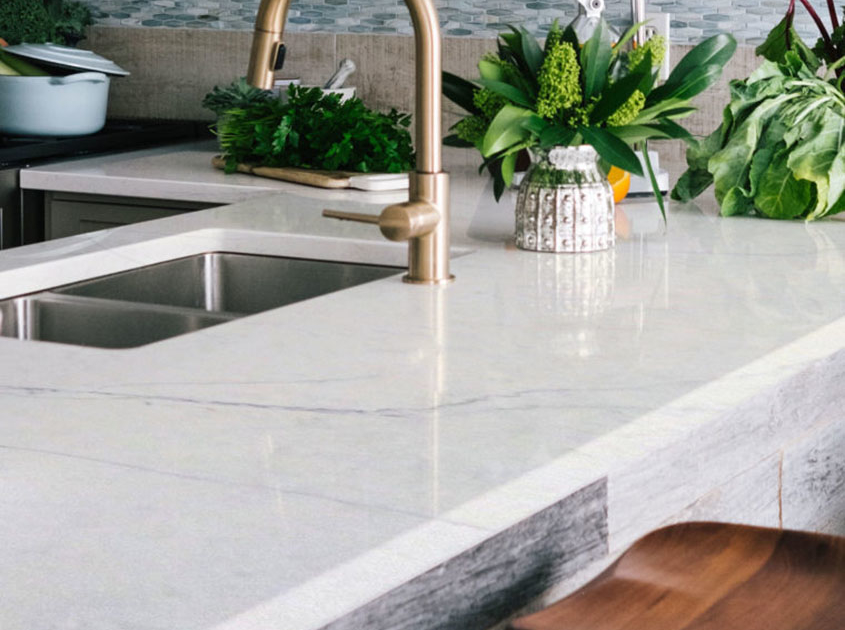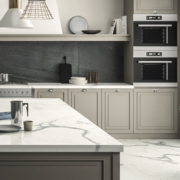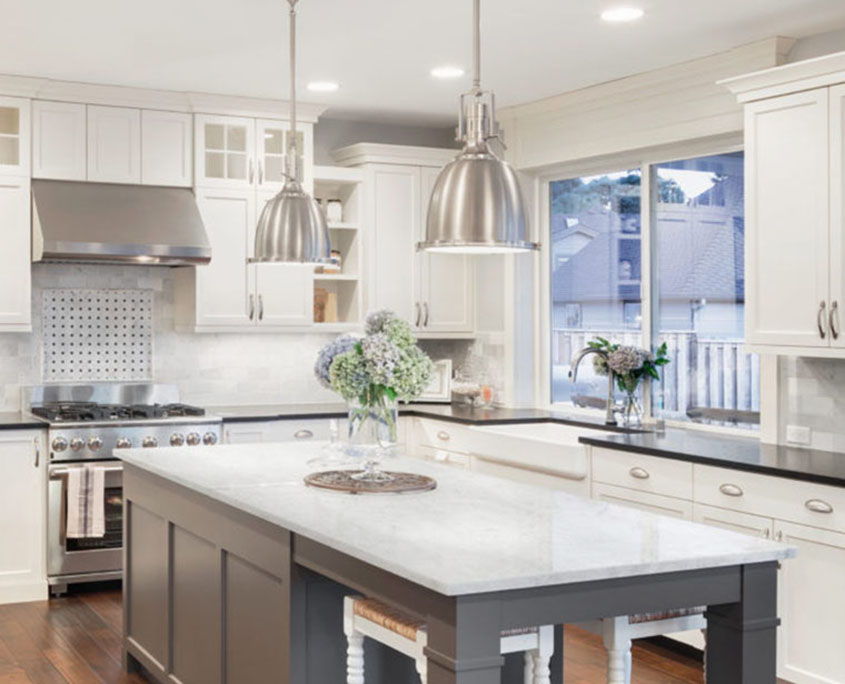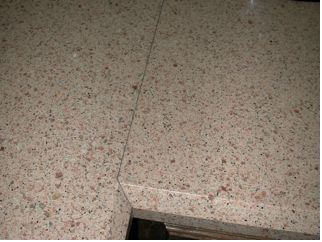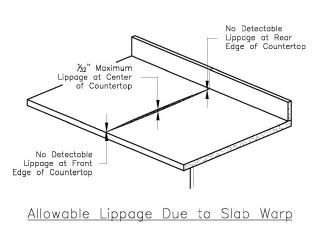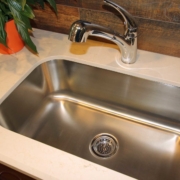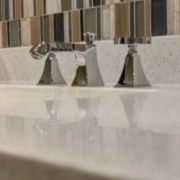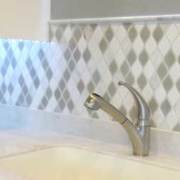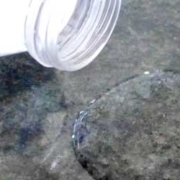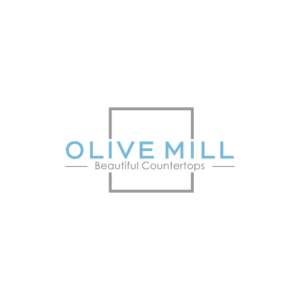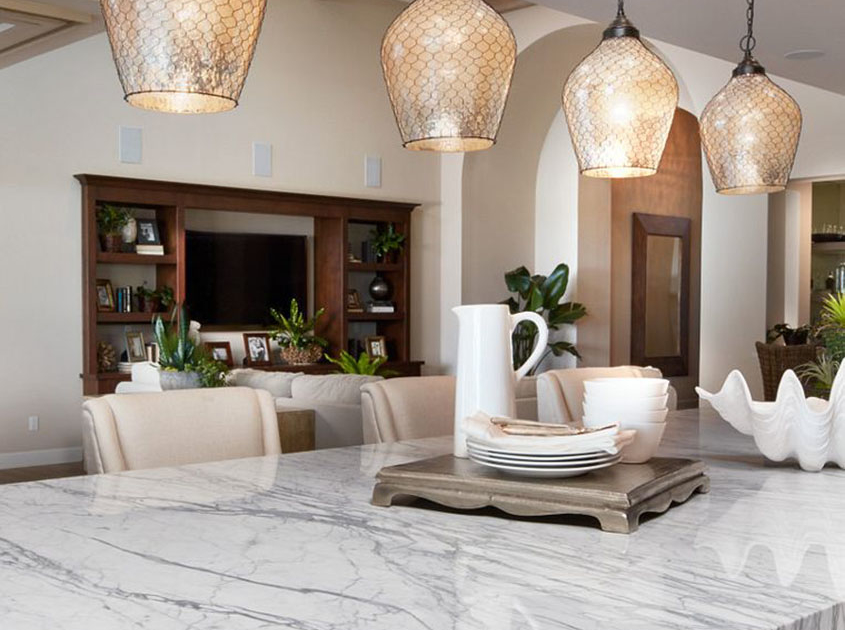
Bianco Venatino Quartzite from Arizona Tile
There are many types of countertops on the market for kitchens. The most common types are quartz, porcelain, quartzite, solid surface, granite, and marble. They all have their own pros and cons. For example, some materials are scratch resistant, while others can be scratched or marred easily. And some materials are more expensive than others.
Here are the most popular kitchen countertops materials.
Quartz
Quartz is a manufactured stone that contains as much as 93 percent quartz particles and other minerals, molded into slabs, and bound with resins, making it a type of engineered stone. These aren’t real quartz slabs quarried from the earth.
Quartz was designed as a more adaptable and better-performing substitute to granite and marble by firms such as DuPont and Cosentino. It is available in a wider range of colors than granite and has a nonporous surface that resists scratching and staining. Some types are convincing imitations of natural marble with comparable veining. Engineered quartz does not require annual sealing, unlike natural stone.
Porcelain
Porcelain is a type of ceramic with properties such as hardness, longevity, heat resistance, and color fastness. While porcelain may be used for kitchen countertops, there are certain drawbacks. There isn’t much depth in surface designs, so if a porcelain countertop is scratched, the pattern will be disrupted/damaged, and the fact that it only runs surface deep will be revealed. When compared to other more substantial-appearing materials like granite, marble, or quartz, porcelain counters are usually very thin.
Porcelain is scratch-resistant and has a long-life span. It is also resistant to heat and stains. Counters made of porcelain are available in assorted colors and designs. They’re also simple to maintain and keep clean.
Quartzite
Quartzite is metamorphic rock. It develops naturally when sandstone or chert with a high quartz content is subjected to tremendous heat and pressure. Quartzite, which usually has a quartz content of more than 90%, can reach 99%. It is heat and scratch resistant but is susceptible to staining.
Quartzite has a glassy sheen and, in some cases, resembles marble. Quartzite is one of the most popular countertop materials for its beautiful look.
Solid Surface
Solid-surface material, also known as Corian, Staron, HI-MACS and Avonite, is a man-made product consisting of a blend of acrylic particles and resins pressed into sheets and other forms. Solid surface countertops and sinks have been around for almost 50 years, but when they were first introduced, they were space-age alternatives to natural stone, which they sought to imitate.
Solid-surface material is stain scratch resistant. Keep heat away from solid surface as not to damage the surface. The main advantage is the ability to repair and refinish, along with a seamless appearance.
Granite
Granite has long been the go-to countertop material when there were no financial concerns to consider. Granites are elegant in a kitchen. When granite worktops are utilized, even tiny kitchens seem like luxury apartments.
Granite has long been an expensive material, although its expense has dropped as supplies have grown and engineered stone has become more common.
The material is resistant to heat and scratches. Granite surfaces require special attention because they are susceptible to staining.
Marble
Marble is a popular stone for kitchen countertops. Because no two pieces of marble are identical, each marble countertop is one-of-a-kind.
Marble has the advantage of looking beautiful and being exceptionally durable, but it may stain and scratch easily. Marble’s sensitivity to stains and scratches makes it a less desirable material for kitchens than granite or soapstone.
